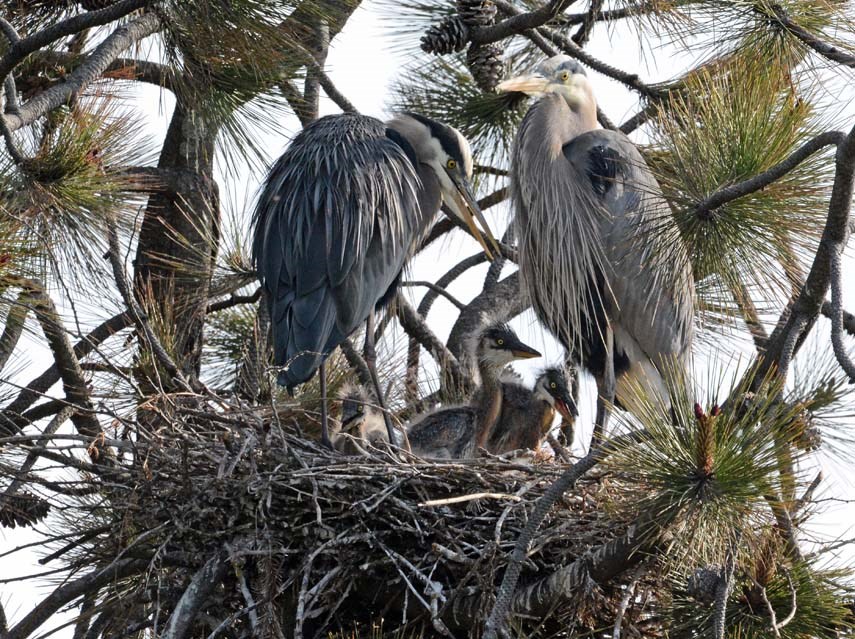I live in a leafy neighbourhood on the North Shore, a stone’s throw from the Capilano River.
It’s a nice place to live – just ask the riot of birds who greet the morning outside the bedroom window, a cacophony of twitters and tweets (the original ones), a chorus of avian daybreak enthusiasm.
Any attempt to stay awake in the face of the chickadee’s chatter or the phoebe’s lament is futile. Except ...
Over the last couple of summers, it seems to me, the music of birdland has lost much of its chirp. Now, as dawn starts to break, the response from the feathered set sounds thin, anemic. There are more solos than ensembles. And they seem to fade faster – what’s the use if no one else is taking the call?
At first, I wondered if it was just me. Maybe I was suffering from age-related bird song deficiency syndrome, i.e. going deaf.
But then, I decided to check in with the source of all knowledge, er, Google, and discovered, in a study published just last week in the eminent journal, Science, that the total population of North American birds has declined by three billion, or 30 per cent, since 1970.
And of the 529 species studied, it’s the ones you expect to greet the morning right outside your window that have declined most dramatically – starlings, sparrows and wrens – down more than 700 million, or more than 50 per cent.
So the science lines up with my anecdotal evidence. And good science it is. The survey is based on data collected from a dozen North American bird surveys such as the Audubon Christmas Bird Count, the North American Breeder Bird Survey and information from 143 U.S. weather radar stations, which also track the migration of birds across the continent. One of the co-authors is a senior biostatistician at the Canadian Wildlife Service, Environment and Climate Change Canada.
Of course, this is only data and these are only scientists, and we’ve fallen into the habit of ignoring everything scientists have to say, mainly because what they say these days is bad news, and we have a tendency to shoot the messenger.
You’d think this would be big news, but unless you’re a birder, did you even know about this latest bulletin from the Apocalypse? Instead the news has been completely given over to the foolish face of our prime minister and his recently revealed Mr. Dressup gaffes. I don’t want to diminish the pain his clumsy blackface caper has caused people of colour, but three billion birds … just gone? Isn’t this a message we should heed? The silence is deafening.
So if they’re not pounding out the tunes in the trees surrounding my patio, where are they? Well, they’re gone. Done in by loss of habitat across their migratory paths, and the decline of the land, water and air from pollution – and most ominously – commonly used pesticides. Another study published in Science by a Canadian scientist and reported in the Star showed that songbirds exposed to pesticides showed weight loss and delays in migration – shades of Rachel Carson’s Silent Spring and the ravages of DDT. That was published 57 years ago today, Sept. 27, 1962. Have we learned nothing?
We all have classic relationships with birds – Canada geese and their v-shaped echelons announcing autumn across a chilly sky; the first robin, a reliable sign that the long winter is over; teeming flocks of tiny wrens and sparrows foraging for seeds on a thin crust of snow.
These iconic experiences are fading from our lives. Unless we respond, they’ll fade from memory.
Believe it or not, there is some good news. Wetland birds such as ducks and geese have increased, mostly through the efforts of conservationists funded in part from the sale of duck hunting licences. Can you say “ironic”? And birds of prey have bounced back since DDT was banned, so it’s not as if we don’t know what to do.
One thing we can all do: keep the cats indoors. Cats kill more than a billion birds every year in North America. Oh, and stop burning the Amazon rain forest, where real snow birds go in the winter.
Meanwhile, there’s a break in the rain; the sun is shining; the patio doors are open to … silence.
In the immortal, haunting words of John Keats:
“The sedge has wither’d from the lake,
And no birds sing.”
Journalist and communications consultant Paul Sullivan has been a North Vancouver resident since the fall of the Berlin Wall and the rise of Madonna. [email protected]
What are your thoughts? Send us a letter via email by clicking here or post a comment below.



